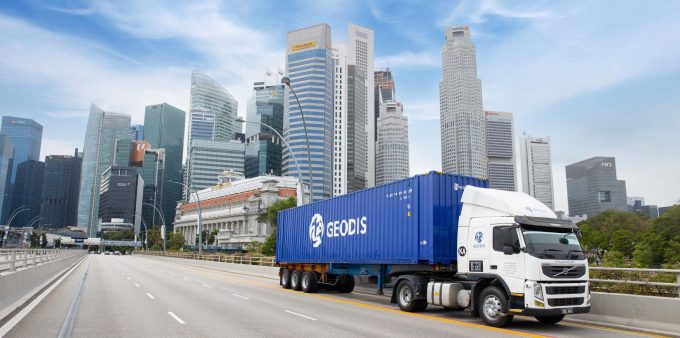Trade growth getting stronger, but ocean freight rates stay flattish
While rates on the transpacific continued to soften, and Asia-Europe trades showed marginal gains, the ...

Ocean and air freight demand has softened, rates have declined and there is a lack of market visibility, making it difficult to know what to expect in 2023, according to a senior industry executive.
In an interview with French business newspaper La Tribune, Geodis CEO Marie-Christine Lombard said in the first half of the year the SNCF-owned logistics group had not experienced a slowdown in terms of year-on-year revenue (+34%) and ebit( +53%).
But, during the second quarter, there had been a decrease in volumes in ocean and air freight on certain routes, such as Asia-Europe.
“Given the importance of this tradelane, it’s a sign of the start of a slowdown. If there is less volume, it means Europeans, who consume 80% of their products from Asia, China in particular, have already begun to reduce their consumption.
“Admittedly, for air freight, the [slowdown] phenomenon is fairly classic at this time of year, and we generally see a pick-up in demand as Q4 progresses, led by hi-tech products.”
On the other hand, Ms Lombard noted: “The summer dip in ocean is unusual, as this period traditionally corresponds to a peak in activity.”, and this had been accompanied by a decline in rates, she added.
On a decrease in air freight rates too, she said: “We don’t know if this is a cyclical phenomenon because the summer is not normally a busy period. Let’s wait until October/November to see if this trend [in air] is confirmed.
“By contrast, road freight prices continue to rise.”
Ms Lombard went on underline that, for the last few months of this year, she’s not expecting a general “collapse” of the market, except of course for serious external events.
“As for 2023,” she said, “we are in the realm of the unknown, but my feeling is that next year will be very different.”
As yet, she is not seeing any noticeable negative sentiment from customers in response to weakening economic conditions. But she added: “That said, it depends on the type of customer and their sector of activity.
“For customers seeking to secure intercontinental capacity – the industrial multinationals that commit to volumes and rates for one or two years – for the time being, none of them have reneged on what has been agreed. Their priority is to ensure the resilience of their supply chains in the face of multiple disruption risks.”
As for customers on a ‘spot’ price basis, and again depending on the vertical, Geodis was seeing volumes decreasing, Ms Lombard revealed.
“This is the case in e-commerce, where the volumes transported are not up to the level of the forecasts provided by customers. The hi-tech sector is also suffering. However, automotive, curiously, does not seem to be showing any signs of slowing down on spare parts or components. So it’s very variable.“
Comment on this article